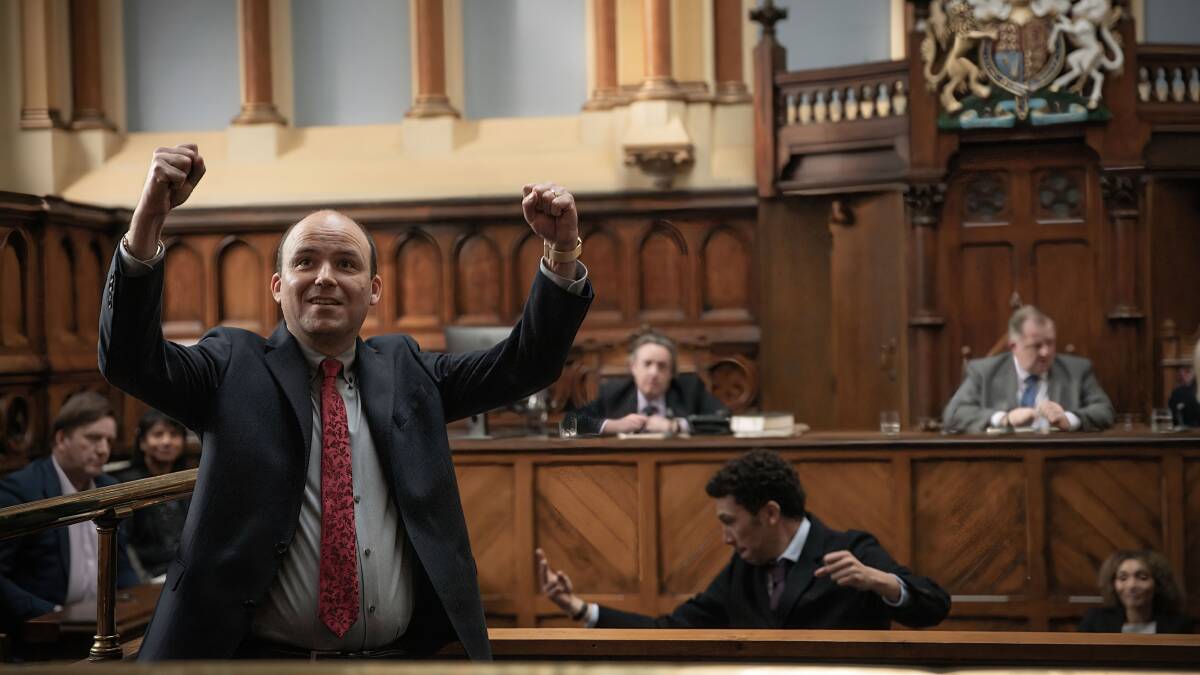Bank of Dave. M, 108 minutes. 3 stars
Subscribe now for unlimited access.
$0/
(min cost $0)
or signup to continue reading
Back in my day, the bad guys in movies were usually Russian, because we were in the thick of the Cold War and we'd been indoctrinated to think of the unknown as something to be feared.
The Soviet Army invaded small-town America in Red Dawn in 1984 and Rocky Balboa took on Ivan Drago in Rocky IV in 1985, but as Glasnost thawed things down, we looked for other entities or nationalities to represent that onscreen enemy, and so Riggs and Murtaugh took on South Africans in Lethal Weapon 2 in 1989 and James Bond kicked North Korea's butt in Die Another Day in 2002.
We're a little more canny as a cinema-going audience these days, and so we need our cinematic baddies to be a little more believable.

Following all those revelations of the Royal Commission into the banking sector after the Global Financial Crisis, what more believable bad guy is there for filmmakers to take on than the banking industry?
Bank of Dave is one of those David versus Goliath stories, based on the real-life tale of a small-town businessman who tried to set up his own bank to keep money invested in his own community rather than going to pay annual bonuses to chaps who went to Eton and studied economics at Cambridge and Oxford.
Now, it's a real lending institution - Burnley Savings and Loans, you can Google them - and that in itself is a bit of a spoiler, but this is a small and sweet British feel-good film of an unexpectedly triumphant underdog, in the vein of such likeable films as Brassed Off or The Full Monty or Billy Elliot, which puts it in fine company indeed.
Dave Fishwick (Rory Kinnear) has been doing quite well with his van rental company in his northern England hometown of Burnley - so well that he has been able to lend a bit of money here and there to members of his community hit by the recent 2008 financial crisis.
Dave would like to turn what has been an informal arrangement into something more formal, perhaps a community bank, but the posh blokes from London's financial industry don't see Dave as the kind of chap deserving of the necessary license.
Dave hires a lawyer from London (Joel Fry as Hugh) to help him take on these faceless men, initially as a cynical exercise.
Dave wants Hugh to get the banking types to publicly admit that it's a closed club that belongs to the Eton crowd who think that Dave is undeserving of a license, and perhaps he can at least score some points in the media or in the court of public opinion.
But it turns out Hugh is good at his job and one of the banking industry players makes a mistake coming after Dave with the force of the London Police. It's a misstep Hugh parlays into a possible resentful invitation to join the banking world, though not without a seemingly insurmountable new set of obstacles.
Where the real-life story of the first new bank being approved in Britain in 150 years ends and the fiction takes up, isn't too hard to pick in Piers Ashworth's screenplay. Most of the characters are fairly formulaic. These include the charming doctor played by the equally charming Phoebe Dynevor, who gives Hugh a reason to keep coming back to small-town Burnley, and the caricature banker played by Hugh Bonneville.
It's fairly predictable and not just because you can Google the real-life outcome.
But the story is winsome and I'm sure any banking fat cats who feel maligned by the creative license in the screenplay can cry themselves to sleep on their enormous pillows of cash.

